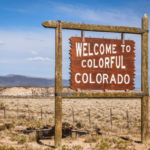Write Better
Lessons Learned: Pay Attention To The Small Things
When you’re initially trying to get your first few stories published, you need to endeavor to make them as error-free as possible. If an editor receives a story rife with misspellings or incorrect word and punctuation usage, it makes them wonder if you got the facts right. Check out my tips for being more intentional in your self-edits, so that you will be much more likely to sell your stories.
Read MoreLessons Learned: All About Those Word Counts
You have questions about word counts – and I have answers! To me, words are like puzzle pieces – the game is working out which words fit the best in any given sentence. In this installment of Lessons Learned, here are the most common questions I’m asked about word counts, along with some insights into the how and why of the answers.
Read MoreLessons Learned: Get Ready To Hit The Send Button In 2021
Now that my mentorship programs are over for the time being, I decided that the best outcome of all our hard work would be to share what we learned together with you. And so, here is the first installment of what I’m calling “Lessons Learned,” a multi-part series of common questions, concerns, challenges, and cheerful tales from our months of collaboration. First up: Three things you must commit to if you’re serious about becoming a freelance travel writer.
Read MoreKeep On Pivoting: Embrace 2021 As The Year To Make Things Happen
We want you to dive into 2021 firing on all cylinders, ready to embrace the challenges being sent your way (we know that sometimes it feels like they’re being hurled at you, and so our best advice right off the bat is: Breathe). Here are a few other thoughts on how to realign your goals to meet 2021 confidently and head-on.
Read MoreThe Best Ways To Format Your ‘if You Go’ For A Travel Story
The If You Go is the additional component of a travel story that includes things such as address, phone number, website, hours of operation, and costs, along with anything else a publication thinks should be made available to a reader. There is no one way to organize, format and present this information, but here are some examples of the most common ways and where to find them, along with tips for making sure you meet a publication’s needs with the If You Go for your story.
Read MoreMaking The Change From Technical Writer To Travel Writer
So many technical writers these days long to make the transition to a more creative type of tale, but they’re finding that it’s not a matter of simply throwing in some adjectives and hoping for the best. Travel writing is essentially feature writing, which is the creative version of journalism, but switching from technical writing to travel writing doesn’t have to be painful – here are some tricks and tips for switching writing career paths more smoothly.
Read MoreFour Things I’m Thankful For in This Otherwise Tough Year
There won’t be quite so much coming together for Thanksgiving or other holidays this year, but there are still plenty of things to be grateful for in a world gone mad. So, when it comes to travel writing – and other aspects of life, to be sure – I am so very appreciative that these four qualities are out there in abundance.
Read MoreHere’s How To Write About The Pandemic In Your Travel Stories
Publications are all over the place when it comes to how they’re handling mentioning COVID-19, from ignoring it completely (which is rare) to including a pull-out box for every story explaining the relevant restrictions. It makes sense to add the pertinent details to any story that you send, but how to do that? Here are my thoughts on that, based on looking through dozens and dozens of magazines and newspapers.
Read MoreHanging Out At Home: Why You Should Be Pitching Local Stories To Local Outlets
While we’re all still stuck in one place for the most part, it’s the ideal time to hunker down and explore travel stories based on our current home base. Here are some local stories, most of them written by freelancers, from my neck of the woods and elsewhere that exemplify what’s selling well everywhere right now.
Read MoreIt’s Not Always About You: The Best Way To Approach Writing Is To Stay Out Of It
When a writer’s first few drafts are all about them – using the word “I” constantly and focusing on their own responses to an experience rather than the experience itself – it almost always indicates that they are not confident in their ability to be a writer. Here’s why you should be removing yourself from the tale, and how to do so.
Read More









